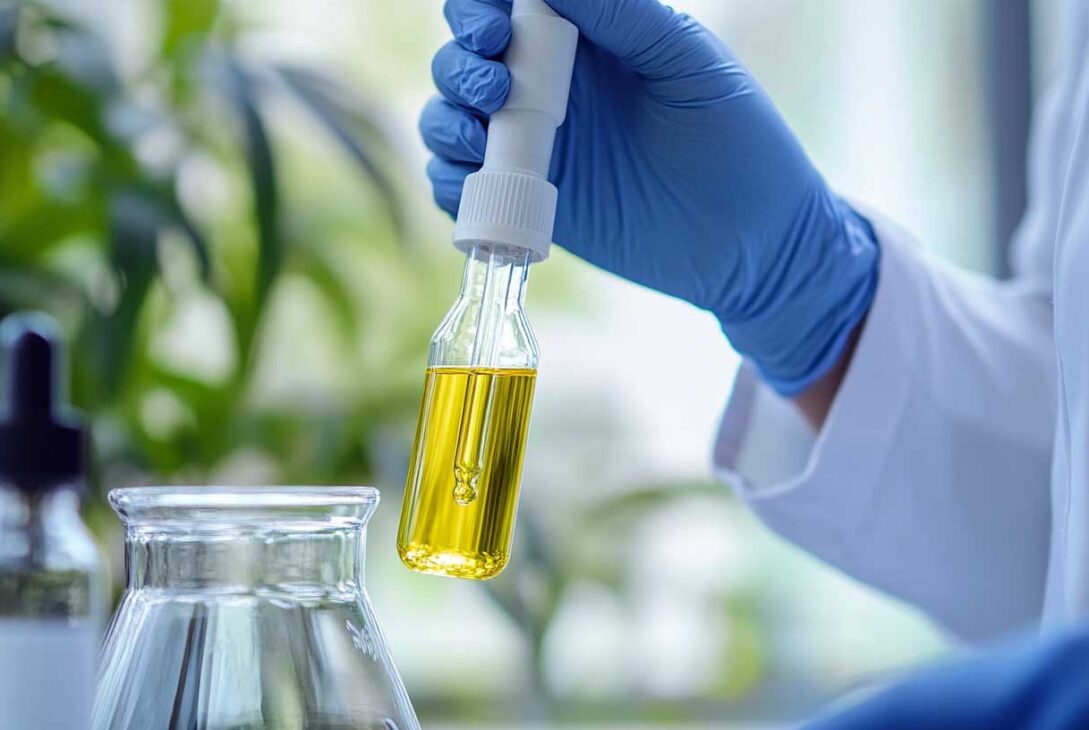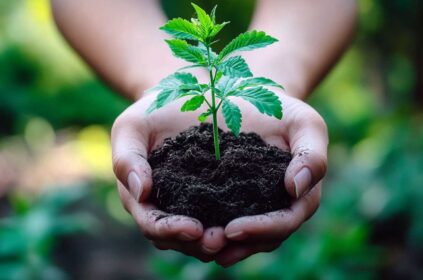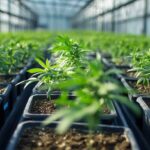The Environmental Impact of CBD Production: A Comprehensive Guide
In recent years, the popularity of CBD products has skyrocketed, with many people embracing the potential health benefits that these hemp-derived solutions offer. As the demand for CBD continues to grow, it is crucial to examine the environmental impact of its production. This guide will explore the sustainability of CBD production, focusing on both its positive attributes and areas that need improvement.
The Sustainability of Hemp Farming
Hemp, the source of CBD, stands out as an eco-friendly crop for several reasons. Understanding these advantages serves as a foundation for evaluating the overall impact of CBD production.
- Minimal Resource Requirements: Hemp is known for its ability to thrive with less land, water, and pesticides than many other crops, making it a more sustainable choice for agriculture. Studies suggest that hemp can produce more fiber per acre than cotton while requiring fewer resources.
- Soil Health: The deep root system of hemp helps prevent soil erosion and enrich the soil. This natural resilience against pests reduces the dependence on harmful pesticides, creating a healthier ecosystem for future farming.
- Air Purification: Through photosynthesis, hemp effectively processes carbon dioxide, which aids in purifying air and combats climate change. It is estimated that hemp can absorb over 22 tons of CO2 per hectare, highlighting its potential for carbon sequestration.
Environmental Benefits of Hemp Cultivation
Beyond its role as a sustainable crop, hemp also contributes to environmental health in various ways:
- Carbon Sequestration: Hemp plants not only absorb CO2 during their growth but also have the potential to store significant amounts of carbon in the products derived from them. This makes them valuable allies in the fight against climate change.
- Biodiversity: Regenerative hemp farming practices can foster diverse ecosystems that support various wildlife species. These methods promote habitat conservation and facilitate water infiltration, which are essential elements for maintaining biodiversity.
Sustainable Practices in CBD Production
While hemp cultivation provides a sustainable foundation, it’s important to also consider how the production processes of CBD can align with eco-friendly practices.
Harvesting and Transportation
- Efficient Harvesting: The rapid growth cycle of hemp allows for quicker harvesting and crop rotation, minimizing land usage. Sustainable farming practices, including organic methods, help preserve soil health and prevent erosion.
- Eco-Friendly Transportation: Although many CBD producers may face challenges related to transportation, implementing sustainable logistics can reduce overall carbon emissions. Choosing local suppliers when possible can further mitigate environmental impact.
Energy-Efficient Processing
- CO₂ Extraction: While CO₂ extraction is energy-intensive, it can be made more sustainable by utilizing recycled CO₂ and powering processing facilities with renewable energy sources, such as solar or wind.
- Ethanol Extraction: This method can also be environmentally friendly when renewable ethanol sources are used and recycling processes are implemented to minimize waste.
- Cold Pressing: Employing this low-energy method allows for the extraction of oils through mechanical pressure, significantly cutting down energy consumption.
Challenges and Areas for Improvement
Despite the environmental advantages of hemp, traditional practices in its farming and processing can lead to notable challenges:
- Deforestation: The expansion of hemp crops can lead to deforestation if land is cleared improperly. Sustainable practices must be adopted to protect existing forests that play a critical role in carbon absorption.
- Water and Chemical Use: Certain farming methods may increase water consumption and promote the use of chemical fertilizers, which can detrimentally affect surrounding ecosystems and water quality.
- Packaging and Transportation: The CBD market often relies on plastic packaging and long-distance shipping, adding to its carbon footprint. Addressing these issues is vital for advancing overall sustainability.
How to Support Sustainable CBD Production
As a consumer, you can play a significant role in promoting eco-friendly practices within the CBD industry. Here are some ways to make responsible choices:
- Opt for Sustainable Brands: Seek out brands that prioritize transparency, ethical farming practices, and renewable energy in their production processes. Companies that are committed to sustainability tend to engage in responsible sourcing and eco-friendly operations.
- Energy-Efficient Processing: Support brands that utilize energy-efficient extraction methods, such as CO₂ and cold pressing, to minimize environmental impact.
- Biodegradable Products: Choose CBD products packaged in biodegradable or recyclable materials wherever possible. This helps reduce landfill waste and supports a circular economy.
Conclusion
As we explore the environmental impact of CBD production, it’s clear that the journey begins with the sustainable nature of hemp itself. While the potential benefits of hemp farming are promising, it is critical to address the challenges arising from traditional farming and production methods to ensure a greener future.
Key Takeaways
- Hemp Farming: This crop requires minimal resources and supports ecosystem health while aiding in carbon absorption and air purification.
- Sustainable Practices: Employing energy-efficient extraction and transportation methods can significantly reduce environmental impacts.
- Eco-Conscious Brands: Choosing products from brands committed to eco-friendly practices minimizes your carbon footprint while enjoying the benefits of CBD.
- Continuous Improvement: Advocating for regenerative practices and sustainable systems in CBD production is vital for a healthier planet.
By selecting sustainable CBD products and supporting brands dedicated to environmental responsibility, you contribute not only to your well-being but also positively impact the planet’s health. The next time you reach for that CBD oil or tincture, think about the bigger picture and the healthier choices you can make for both yourself and the environment.


















